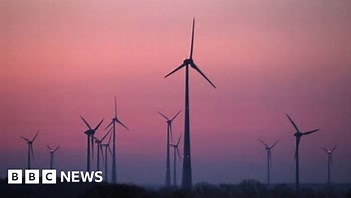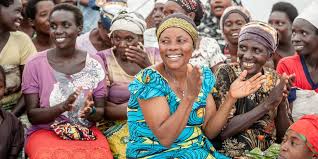
Nigeria ‘s climate change battle gets boost with DBN’s Green Climate Fund accreditation
- Climate Change
- No Comment
- 320

The Development Bank of Nigeria Plc (DBN) has secured accreditation from the Green Climate Fund (GCF), enabling it to access between $50 million and $250 million in funding for climate change projects.
Tony Okpanachi, the Managing Director of the bank who disclosed wihile addressing journalists in Abuja on Tuesday noted the significance of this accreditation in combating climate change challenges faced by Nigeria, including desertification, flooding, and unpredictable weather patterns.
This landmark accreditation positions DBN as the first Direct Access Entity (DAE) in Nigeria, granting it direct access to GCF resources without intermediaries.
However, with the accreditation, DBN can only help with loans and project management. But they are planning to add grants, investments, and guarantees soon.
The GCF funds will be channelled towards climate mitigation and adaptation projects aligned with Nigeria’s Nationally Determined Contributions (NDCs).
These projects will focus on key sectors such as agriculture, manufacturing, healthcare, education, transport, and logistics.
GCF funds will be administered at highly concessionary rates, involving close collaboration with the Nigerian Climate Change Council (NCCC) for project selection, appraisals, and alignment with Nigeria’s Nationally Determined Contributions (NDCs).
Okpanachi said GCF’s resources can only be used for climate mitigation and adaptation projects which must be aligned with Nigeria’s NDC focus areas.
He added said this will benefit Nigeria in many ways and that “Through this collaboration, Nigeria will receive a boost in its fight against the effects of climate change (desertification, global warming, unpredictable rainfall patterns, storms, floods) as well as assist the country’s efforts towards achieving sustainable development, promotion of environmentally friendly technologies in key sectors of the economy including agriculture, manufacturing, healthcare, education, transport and logistics etc.
The accreditation he said, will “also help create greater awareness on climate change, culminating in greater involvement of Nigerians in climate actions prompting a shift towards green economy as well as raise the Nigerian portfolio in climate financing globally, and unlocking more climate funds.”
Okpanachi noted that climate change has become an existential threat to humanity as extreme weather conditions have caused devastating effects on livelihoods – depletion of grazing lands for livestock, rising sea levels causing excessing flooding that displaces communities, changing rainfall patterns that negatively affect agricultural yields, poor water and air quality that impact health, and extensive loss of biodiversity (plant and animal species) among other implications.
He further noted that, with the accreditation, the DBN is empowered to “develop and submit funding proposals for projects and programmes, oversee management and implementation of projects and programmes, deploy a range of financial instruments such as concessional loans, co-financing and blending for loans and mobilize private sector capital for such climate change initiatives.”
The Managing Director went on to inform that this accreditation covers projects that fall under the categories of basic fiduciary standards, specialized fiduciary standards, project management, on-lending and/or blending for loans, ESS Risk: Category B and medium-sized projects.
The Green Climate Fund (GCF) is the world’s largest dedicated fund helping Small Island states, and least developed and developing countries reduce their greenhouse gas emissions and enhance their ability to respond to climate change.
“It does this by channelling climate finance to developing countries and investing in their adaptation and mitigation activities through a project portfolio that is implemented by its partner organizations, known as Accredited Entities.
These Accredited Entities, which can either be International Accredited Entities or Direct Access Entities (DAEs), develop funding proposals to be considered by the GCF. They also oversee, supervise, manage, and monitor their respective GCF-approved projects.
This is indeed a great milestone not just for DBN, but for Nigeria as a whole given the opportunities it provides for the country to build resilience against climate change.
By Ladi Patrick-Okwoli





